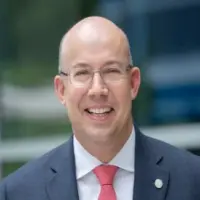About Aurora Behavioral Health Services
Aurora Behavioral Health Center is an outpatient behavioral health facility located in Racine, Wisconsin. The staff provides psychotherapy and psychiatric services to treat substance abuse. They provide treatment to individuals of all ages, as well as families and couples.
Counseling For Both Mental Health and Substance Abuse
Mental health disorders and substance use disorders can often occur at the same time. The staff is experienced in treating both conditions. Mental health issues that the facility can help with include anxiety, grief and depression among others.
For both mental health and addiction recovery, the team here mostly uses cognitive behavioral therapy and dialectical behavior therapy. CBT and DBT can teach individuals stress management techniques that can reduce mental health symptoms and make clients less likely to use substance use as a coping mechanism.
Your counselor can also help with family issues that may have been caused as a result of your addiction or that have contributed to your addiction. Counseling can reduce family conflict and teach your family ways they can support your recovery.
Symptom Relief Through Psychiatric Medicine
Psychiatric medicine may be an option to consider when talk therapy hasn’t been effective for your mental health symptoms. The psychiatrist on staff can prescribe medications that are designed to reduce symptoms of anxiety, depression, and other mental illnesses affecting your addiction recovery.
Aurora Behavioral Health Center is about a half hour away from Milwaukee. Outside of your treatment sessions, you can take time to relax by spending time lying in the sand at Bradford Beach or checking out the animals at the Milwaukee Zoo.
Facility Overview
Rehab Score
Other Forms of Payment
Private insurance refers to any kind of healthcare coverage that isn't from the state or federal government. This includes individual and family plans offered by an employer or purchased from the Insurance Marketplace. Every plan will have different requirements and out of pocket costs so be sure to get the full details before you start treatment.
Self-pay involves paying for treatment out of your own pocket. You can use savings or credit, get a personal loan, or receive help from family and friends to fund your treatment. If you don't have insurance or your insurance plan doesn't cover a specific program, self-pay can help ensure you still get the care you need.
Financial aid can take many forms. Centers may have grants or scholarships available to clients who meet eligibility requirements. Programs that receive SAMHSA grants may have financial aid available for those who need treatment as well. Grants and scholarships can help you pai for treatment without having to repay.
Medicare is a federal program that provides health insurance for those 65 and older. It also serves people under 65 with chronic and disabling health challenges. To use Medicare for addiction treatment you need to find a program that accepts Medicare and is in network with your plan. Out of pocket costs and preauthorization requirements vary, so always check with your provider.
Medicaid is a state based program that helps lower-income individuals and families pay for healthcare. Medicaid covers addiction treatment so those enrolled can use their coverage to pay for rehab. When a program accepts Medicaid the client often pays very little or nothing out of their own pocket.
Addiction Treatments
Levels of Care
Outpatient Programs (OP) are for those seeking mental rehab or drug rehab, but who also stay at home every night. The main difference between outpatient treatment (OP) and intensive outpatient treatment (IOP) lies in the amount of hours the patient spends at the facility. Most of the time an outpatient program is designed for someone who has completed an inpatient stay and is looking to continue their growth in recovery. Outpatient is not meant to be the starting point, it is commonly referred to as aftercare.
Completing a drug or alcohol rehab program shouldn't spell the end of substance abuse treatment. Aftercare involves making a sustainable plan for recovery, including ongoing support. This can include sober living arrangements like halfway houses, career counseling, and setting a patient up with community programs like Alcoholics Anonymous (AA) or Narcotics Anonymous (NA).
Treatments
Mental health rehabs focus on helping individuals recover from mental illnesses like bipolar disorder, clinical depression, anxiety disorders, schizophrenia, and more. Mental health professionals at these facilities are trained to understand and treat mental health issues, both in individual and group settings.
Programs
Adult rehab programs include therapies tailored to each client's specific needs, goals, and recovery progress. They are tailored to the specific challenges adult clients may face, including family and work pressures and commitments. From inpatient and residential treatment to various levels of outpatient services, there are many options available. Some facilities also help adults work through co-occurring conditions, like anxiety, that can accompany addiction.
Young adulthood can be an exciting, yet difficult, time of transition. Individuals in their late teens to mid-20s face unique stressors related to school, jobs, families, and social circles, which can lead to a rise in substance use. Rehab centers with dedicated young adult programs will include activities and amenities that cater to this age group, with an emphasis on specialized counseling, peer socialization, and ongoing aftercare.
Clinical Services
As a form of substance use treatment, cognitive behavioral therapy in Wisconsin offers several advantages. The duration of this talk therapy is typically 20 sessions or less, so it can be more affordable, with quicker results. It's also offered in multiple formats, so it can be tailored to meet individual needs.
The word dialectical describes the foundation of dialectical behavior therapy (DBT). Meaning "opposite," the word refers to the treatment's focus on both acceptance and change. While learning to accept where you are and the emotions you're feeling, you also learn to grow and change to establish healthier patterns in your life.
In individual therapy, a patient meets one-on-one with a trained psychologist or counselor. Therapy is a pivotal part of effective substance abuse treatment, as it often covers root causes of addiction, including challenges faced by the patient in their social, family, and work/school life.
During couples therapy, you will engage in activities that promote forgiveness, healthy communication, and understanding. You'll receive "homework" to practice these skills during the week between sessions. Couples therapy typically lasts around 12 weeks.
Research clearly demonstrates that recovery is far more successful and sustainable when loved ones like family members participate in rehab and substance abuse treatment. Genetic factors may be at play when it comes to drug and alcohol addiction, as well as mental health issues. Family dynamics often play a critical role in addiction triggers, and if properly educated, family members can be a strong source of support when it comes to rehabilitation.
Staff

Eugene A. Woods
CEO

Bobbie Byrne, MD, MBA
EVP, CIO

Brad Clark
EVP, CFO

Kinneil Coltman, DHA
EVP, Chief Community & Social Impact Officer

Brett J. Denton
EVP, Chief Legal Officer

Julie A. Freischlag, MD, FACS, FRCSEd(Hon), DFSVS, MAMSE
CEO, Chief Academic Officer, Atrium Health Wake Forest Baptist, Chief Academic Officer & EVP, Advocate Health

Ken D. Haynes, MSHA, MBA, FACHE
President, Advocate Health – Southeast Region

Nakesha Lopez, MBA
EVP, Chief People & Culture Officer

Carol A Lovin, MHSA, MN
EVP, Chief of Staff & Chief Integration Officer

Kevan Mabbutt
EVP, Chief Marketing, Communications & Consumer Experience Officer

Scott Rissmiller, MD
EVP, Chief Physician Executive

Betty Jo Rocchio, DNP, RN, CRNA, CENP, EBP-C
EVP, Chief Nurse Executive

Rasu B. Shrestha, MD, MBA
EVP, Chief Innovation and Commercialization Officer

Shoeb J. Sitafalwalla, MD
EVP, Chief Strategy Officer
Contact Information
8400 Washington Ave
Racine, WI 53406